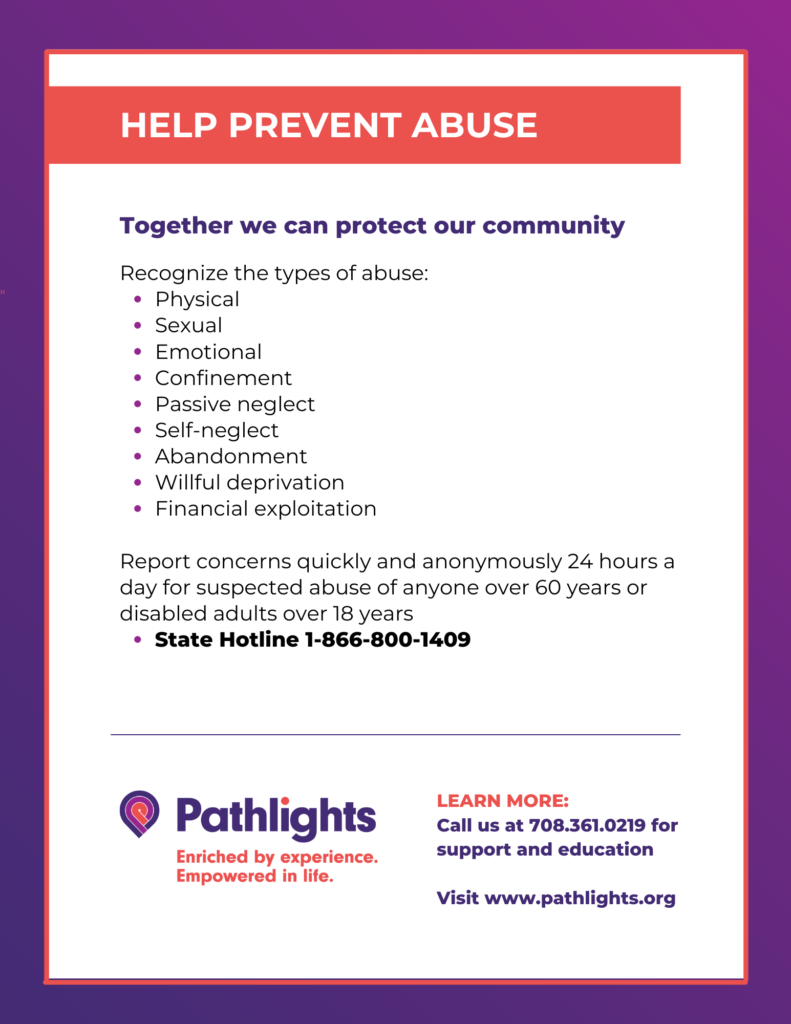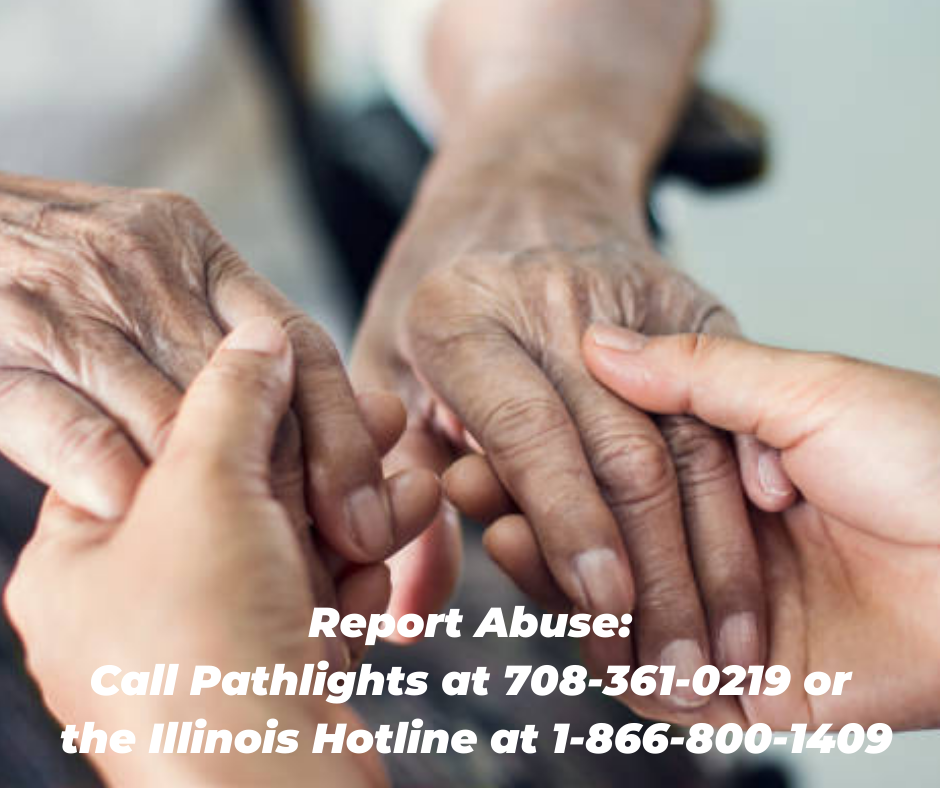Pathlights received funding from the Illinois Criminal Justice Information Authority (ICJIA) Restore, Reinvest, and Renew (R3) program to support community neighborhoods most impacted by economic disinvestment, violence, and the war on drugs.
In partnership with Metropolitan Family Services this grant funds a new campaign to prevent and educate about abuse. The effort, with special focus in Blue Island and Robbins, consists of direct mail, newspaper advertising, and editorial, social media outreach, as well as virtual and in-person community training and awareness events with professionals working for fire and police departments, financial institutions, faith-based organizations, libraries, and villages.
To date, Pathlights has received more than 10 new Adult Protective Service cases in Blue Island and Robbins, established new and built on existing partnerships with leaders within the communities, and reached an audience of more than 400,000 with information about community supports, the signs of abuse, how to prevent abuse, and how to respond when abuse is witnessed or suspected.
Every year an estimated 1 in 10 older adults experience abuse, neglect, or exploitation and it is often significantly under-reported — as few as 1 in 14 cases of abuse are ever brought to the attention of authorities. Abuse affects people across all socioeconomic groups, cultures, and races and can happen to anyone intentionally or unintentionally. As an advocate for older adults, Pathlights’ experienced team visit potential victims, conduct screenings, address concerns and help eliminate and reduce the risk of abuse. The holistic assessment helps Pathlights determine all types of needs including nutrition gaps, caregiver support, and eligibility for benefits such as tax savings and Medicaid – free services to help older adults live independently in their homes for as long as possible safely and with dignity.
What is elder abuse?
Abuse of an older adult or adult with disabilities can include physical, sexual, or emotional abuse; abandonment; confinement; passive neglect; self-neglect; willful deprivation; or financial exploitation. In most cases, the abuser has a trusted relationship with the victim.
Why is it a silent epidemic?
Many people who experience abuse are reluctant to report abuse because they may:
- Feel ashamed and embarrassed, particularly if a family member is the perpetrator (abuser)
- Be afraid that the perpetrator (abuser) will get in trouble
- Worry that they will be forced to move—and this sometimes happens
- Feel guilty or somehow to blame
- Be in denial that the abuse is occurring, or unaware that what they are experiencing is abuse or neglect
- Be unable to speak out due to dementia or other impairments or may not be believed when they do.
How can you intervene and/or prevent it?
- Understand more about factors that increase older people’s isolation, which in turn puts people at greater risk of experiencing abuse or neglect
- Keep in frequent contact with older friends, neighbors, and relatives and listen and watch for warning signs of abuse
Our trained professionals in Adult Protective Services investigate abuse through the Illinois Department on Aging. Together we can protect our community. If you suspect an older adult or an adult with disabilities is a victim of abuse in Palos, Lemont, Orland, Stickney, or Worth Townships, please immediately make a report to Pathlights at 708-361-0219 or through the state hotline at 1-866-800-1409. Your identity will remain anonymous and your information confidential.



